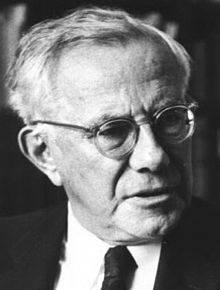Paul Tillich

“It is for me,” wrote Karl Barth to Paul Tillich, “a very special phenomenon that we understand one another so well and cordially at the human level but materially, … we can only contradict and oppose one another from the very foundation up!” [1] Barth and Tillich enjoyed one another’s company, but theologically they were poles apart. The cordial relations did not stop Barth writing to a wife of a former student, congratulating her husband that he had made “the necessary attack on Tillich’s abominable theology.” [2] Barth, I think far more than Tillich, found this tension made their relationship difficult. I will make a few references to Barth as I try to assess Tillich’s work, but it should be clear that in hearing about Paul Tillich we are entering a very different world to that which the curate spoke about last week. Paul Tillich was born in Starzeddel in Germany on 20 th August, 1883. He was a son of the Vicarage, and his father was a conservat
